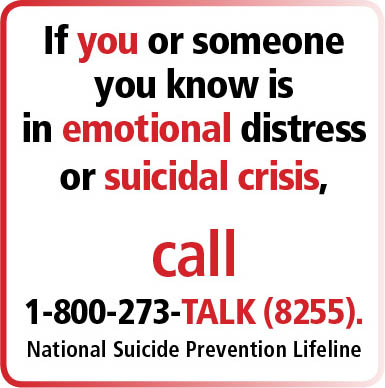Stress is a common response to the many challenges we face every day. We can’t make stress go away, but there are things we can do to cope and reduce stress. It helps to recognize the signs of stress, and to adopt some simple ways to cope.
Signs of stress:

We all show stress in different ways, including:
- Fatigue
- Upset stomach
- Aches & pains
- Depression
- Anger
- Anxiety
- Difficulty making decisions
- Difficulty sleeping
- Restlessness
- Loss of interest
Unhealthy ways of dealing with stress:
The following common reactions to stress don’t help. In the long-run these activities actually increase the stress in our lives.
- Spending hours watching TV
- Avoiding responsibilities
- Overeating or under-eating
- Drinking too much
- Smoking
- Taking stress out on others
- Avoiding friends and family
Healthy ways to cope with stress:
Here are helpful steps to reduce stress.
Step 1: Avoid sources of stress
By recognizing what is causing our stress, we can take steps to reduce or eliminate things that add to our stress. For example:
- Learn to say “no” – We need to know our limits. We don’t have to do everything that others want us to do. It’s okay for us to say “no” to something that we know will increase our stress level.
- Limit time spent with people who create stress – If possible, we should limit the amount of time we spend with negative or difficult people.
- Take control – If something adds stress to our day, we should look for ways to take control of the situation and do something about it. (For example, if we notice that news programs make us anxious, we should stop listening to or watching the news.)
Step 2: When stress is unavoidable, make small changes
Sometimes we can’t avoid stress, but there are small steps we can take to improve how we react to a situation or person.
- Speak up – It’s okay to let someone know when something is bothering us. When we share our feelings in a respectful way, we release pent-up frustrations and avoid additional stress in the future.
- Compromise – When we voice our feelings, we need to be open to the other person’s feelings. This means that we need to be flexible and find a solution that works for both us and the other person.
- Face our problems – Sometimes we make problems worse by avoiding them. By looking at our problems and finding a workable solution, we can reduce stress and accomplish more.
- Don’t try to do everything – We sometimes have unrealistic expectations of ourselves. We need to not overload our schedule so we have some downtime to relax and enjoy life.
Step 3: Change how we think about the stress in our lives
If we can’t change the problem causing stress, we can change our attitude and thoughts about the problem.
- Look at the big picture – Often we might focus so much on a problem, that we lose sight of the big picture. It helps to ask ourselves questions like – “Is this really worth getting upset about?” If the answer is “no,” than we should focus our time and energy elsewhere.
- Think positive – When something goes wrong we might think that everything is going wrong. By taking a closer look, we will realize that many things are going right. By remembering and counting the positives in our live we will regain a more positive outlook.
- Reframe the problem – It is possible to think differently about our situation. For example, instead of getting upset that we have a long commute to work, we can make this downtime a plus in our lives by listening to our favorite music or audiobook, or thinking through our day.
- Accept the things we can’t change-- Life is not perfect. Everyone faces challenges, disappointments and fears. When we let go of the idea that things should be perfect, we will learn to deal better with what is.
Step 4: Find time to relax and have fun
We sometimes get caught up by life’s hectic pace, and forget to take time to enjoy ourselves along the way.
- Plan time to relax -- We need to think about the things that help us to relax, and we need to do those things. By nurturing ourselves, we will be in a better place to handle life’s stressors.
- Spend time with family and friends – Some of us react to stress by wanting to be alone. While alone-time can help, too much time alone can add to our stress. Spending time talking and sharing with others is a great way to work through what’s troubling us.
- Find time to enjoy life – We need to spend time doing things that we enjoy. We might like to read, knit, play a musical instrument, etc. Whatever it is, we should carve time out of each day to do it.
- Laugh – When we laugh we feel better. Maintaining an active sense of humor is an excellent way to reduce stress.


